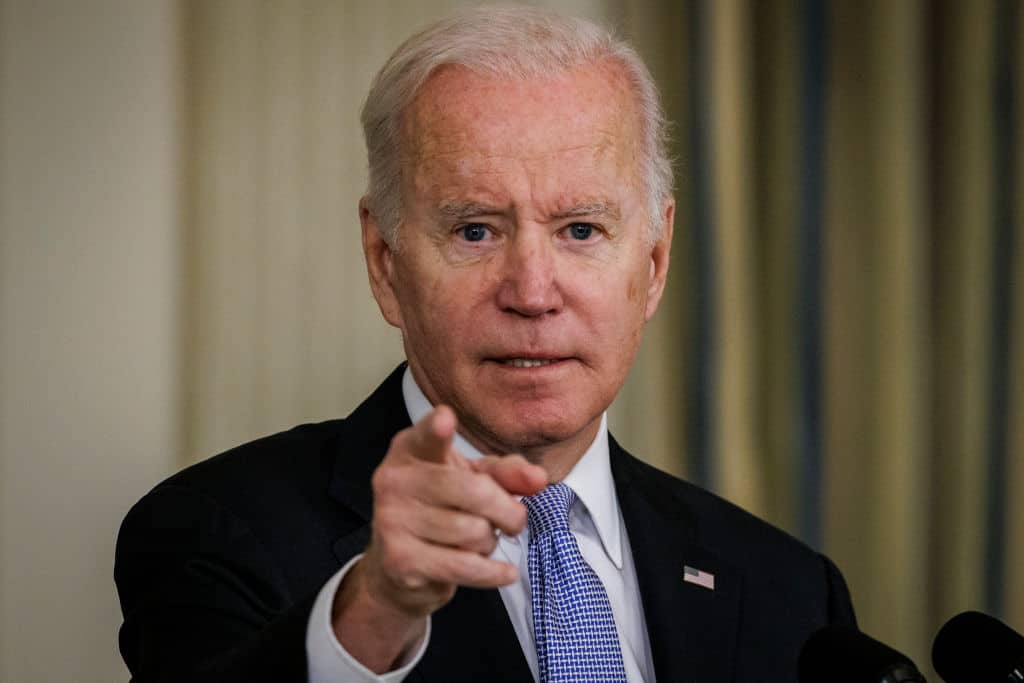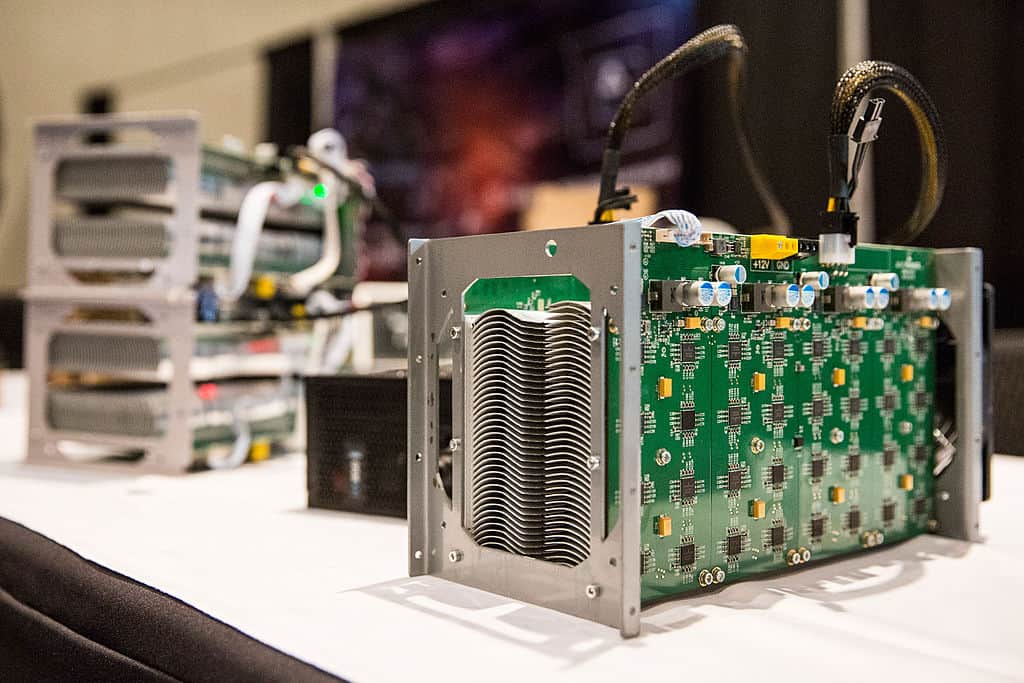In this issue
- Ethereum: On the up
- US crypto tax: Compliance conundrum
- Chinese mining: Success in exile
From the Editor’s Desk
Dear Reader,
In this world, nothing is certain except death and taxes. So said U.S. founding father Ben Franklin. More than 230 years later, he’s still being proved right.
It was unsurprising, then, that as part of the U.S. House of Representatives’ passage of the Biden administration’s infrastructure bill last week, an unwelcome — and many say unworkable — new tax arrangement targeting the cryptocurrency sector got the green light.
The legislation makes a huge range of players in the crypto space liable for reporting other parties’ receipt of digital assets to authorities — and makes the failure to do so a felony offense, punishable by fines and up to five years’ jail time.
Taxation may be a certainty, but just how this attempt to tax activity in the crypto industry will operate in practice remains in question.
Despite the uncertainty, Franklin’s prescient words imply in respect of most all else, and despite the new U.S. tax plan, crypto bulls seem undaunted when it comes to the appreciating value of coins — especially Ethereum and Bitcoin, both of which this week hit fresh all-time highs. Other tokens — Solana, Cardano and Polkadot among them — have also chalked up gains in recent days.
As this edition of The Current Forkast observes, even some Chinese companies are still betting on crypto, despite the beating the sector has taken from the authorities in Beijing in recent times.
And as we prepare to open our first global Bitcoin & Beyond Virtual Summit with AAX in the coming hours, we also believe the industry’s future is bright. Our line-up includes some of the world’s leading voices in the crypto asset space and an agenda that’ll give attendees the inside track on some of the most important issues facing the industry. Join us and the thousands of others who have already registered to attend. We kick things off LIVE on Nov. 10 at 9 a.m. Hong Kong/Nov. 9 at 8 p.m. U.S. EST, so sign up here to avoid missing out. This is the one time I’ll happily gift FOMO to our many valued readers.
Until the next time,
Angie Lau,
Founder and Editor-in-Chief
Forkast.News
1. Upwardly mobile
By the numbers: Ethereum — over 5,000% increase in Google search volume.
Ethereum’s Ether reached a new all-time high of US$4,857 on Tuesday morning, beating the peak of US$4,766 it hit on Monday. Bitcoin followed Ethereum’s lead, also hitting a new all-time high of US$68,641, as the total capitalization of the cryptocurrency market topped US$3 trillion for the first time.
- “What we’re currently seeing with Ethereum — of course we cannot separate [that] from what we see with Bitcoin — we’re going through a period of kind of accumulation, which is interesting at these price levels,” said Ben Caselin, head of research at crypto exchange AAX. “Once supply shock kicks in, then I think within this month we can see Bitcoin go above US$80,000, and I think actually Ethereum can touch US$6,000 by the end of the month.”
Forkast.Insights | What does it mean?
Ethereum’s rally has helped the broader crypto market reach US$3 trillion, a milestone that represents a remarkable year for the industry. Crypto’s total market cap has quadrupled from where it was at the end of 2020, thanks to Ethereum and also to Bitcoin’s growing adoption as a part of the mainstream finance sector landscape. But their value is seen differently — at least by institutional investors.
Bitcoin, with its unyielding approach to upgrades and functionality improvements, has become a favorite among investors wanting exposure to the asset class, amid comparisons to gold. Ethereum holders, meanwhile, appear more drawn to the project’s adaptability, especially as that relates to its role as the base blockchain for decentralized finance.
Although Ethereum has proved itself time and again, it nevertheless faces challenges: namely, the larger it becomes, the harder it is to move everything over to the long-awaited proof-of-stake blockchain.
The benefits of August’s London hard fork upgrade, which promises to help reduce the network’s carbon footprint and cut its fees, are still some time away. That has opened the door for other, more nimble blockchains, such as Solana, whose coin has been trading at record highs. Institutional investors have also been jumping into blockchains specializing in NFTs and the metaverse, two parts of the digital asset ecosystem that Ethereum helped create.
ETH may be riding high, but it’s got company.
2. Going for broker

By the numbers: infrastructure bill — over 5,000% increase in Google search volume.
The U.S. House of Representatives passed a US$1.2 trillion infrastructure bill last Friday, which, if signed into law by President Joe Biden, will usher in controversial new provisions related to crypto-tax reporting.
- The bill includes a measure that changes the federal tax authority’s definition of a “broker” to include organizations that trade crypto assets — meaning that crypto exchanges, miners, validators and even crypto wallet companies and decentralized app developers will be considered brokers and will have to report their transactions directly to the Internal Revenue Service.
- Assuming the bill becomes law, its rules for crypto could come into force from 2023, raising an additional US$28 billion in taxes as a result of the proposed reporting requirements.
- The legislation, proposed by the Biden administration in an attempt to improve the nation’s underfunded infrastructure, was approved by the Senate on Aug. 10, prompting a group of six senators to propose an amendment, saying the legislation “imposes a badly flawed, and in some cases unworkable, cryptocurrency tax reporting mandate that threatens future technological innovation.” However, the proposed amendment was later rejected by the Senate.
- The main source of concern in the bill is a proposed amendment to Section 6050I, a part of the tax code that makes it a felony to incorrectly report the receipt of more than US$10,000. That possible amendment to Section 6050l could make those receiving digital assets responsible for collecting senders’ personal information, storing that information, and reporting it to the government within a certain time frame, a requirement that’s simply unfeasible in the peer-to-peer, permissionless crypto world.
- The Crypto Council for Innovation posted a letter on Twitter last week, voicing its displeasure with the definition of brokers and the reporting requirements proposed by the bill, and calling for more clarity from Congress. Brian Armstrong, the CEO of crypto exchange Coinbase, also tweeted concerns over the bill.
Forkast.Insights | What does it mean?
Ever since Congress created the U.S.’s first federal regulatory body more than 130 years ago, people have debated the proper role for what has been dubbed the “fourth branch” of government. Financial and industrial regulation, when it’s drawn up well, protects people while ensuring competition is protected and monopolies are kept in check. But in order for such regulation to be effective, the companies and industries at which it is aimed must remain within reach of enforcement. Crypto is distinguished by being elusive in this respect.
Faced with such issues as crypto billionaires hiding out in Puerto Rico and exchanges that employ convoluted corporate structures, authorities face a challenge in regulating an industry whose very origins lie in the pursuit of freedom from such restraints. As the United Kingdom has learned the hard way with Brexit, companies can and do pack up and move on if the business environment doesn’t suit their needs.
In this case, regulators are looking to compel individuals to fess up to how much they’re spending, and more importantly, earning. Capital flight is a well-understood concept in financial circles. The world of decentralized money may yet give birth to a new, homegrown term: crypto flight.
3. Escape from Beijing

As authorities in China crack down on the country’s private tutoring sector, one education-tech company has decided to pivot into blockchain and cryptocurrency mining. Nasdaq-listed Meten Holding Group, which officially changed its name from Meten EdtechX Education Group in August, is moving forward with a plan for a new business venture in the crypto world, placing a US$12 million initial order for 1,500 Bitcoin mining machines from AGM Group Holdings, a software company that recently went into ASIC chip research and development.
- Meten said in September that it was planning to venture into the blockchain and crypto business. “For this new line of business, we are contemplating purchasing mining machines and non-fungible token assets and placing them into operations in the U.S. or Canada,” the company said in a U.S. Securities and Exchange Commission filing. “We may also build our own mining farm, and we are currently searching for low-cost natural gas, oil mines and other suitable sites in Canada.”
- Founded in 2006, Meten had by the end of last year built a nationwide network of 105 self-operated learning centers and 13 franchised learning centers. It had launched an online English learning platform named “Likeshuo” six years earlier. However, the company has faced increasing headwinds since authorities launched a crackdown on the private tutoring sector in July.
- To measure said it chose to partner with AGM for its chip design expertise. However, just last week, it was revealed that AGM chip design partner HighSharp had been accused of patent infringement by mining rig maker Canaan.
Forkast.Insights | What does it mean?
Out of the frying pan, into the fire? Moving out of private education into cryptocurrency in China may seem at first glance to be an inexplicable decision, given Beijing’s scorched-earth policies toward the crypto industry. However, Meten’s move into mining outside Chinese authorities’ reach may be a shrewd way of developing a revenue stream to support its broader operations.
China’s beleaguered crypto mining community has been looking for a new home, and part of Meten’s business plan is to offer mining farm construction as well as mining-pool and data-center operations, critical components of any successful Bitcoin mining business.
Offering such services to Chinese miners in crypto-friendly jurisdictions such as Canada and the U.S. makes complete sense. What also makes sense is diverting resources into an industry that, despite Chinese authorities’ best efforts to slay it, has continued to flourish. Bitcoin has been trading at record highs and has helped lift the crypto market’s capitalization to US$3 trillion.
For a company trying to navigate the perils of Chinese regulation, a move into an industry that’s four times larger than it was 12 months ago sounds like good business sense.
